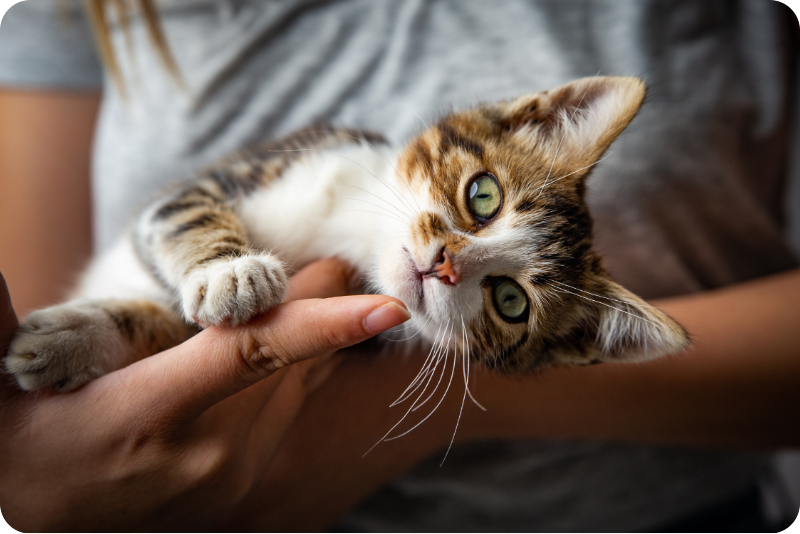Just like people, pets can suffer from arthritis, a painful, progressive condition that affects the joints. While it’s more common in older animals, younger pets can develop arthritis too, especially after injury or due to joint abnormalities.
We believe that recognising the early signs of arthritis in pets is key to helping them live a comfortable and active life.
Quick Links
What Is Arthritis in Pets
Arthritis is the inflammation of the joints, causing stiffness, swelling, and pain. The most common type is osteoarthritis (degenerative joint disease), where the cartilage that cushions the joints wears down over time.
This can affect any joint in the body, but it’s most often seen in the hips, knees, elbows, and spine.
Signs of Arthritis in Dogs and Cats
Pets are naturally good at hiding pain, so the signs of arthritis can be subtle at first. Look out for:
- Stiffness, especially after rest or in the morning
- Limping or lameness
- Difficulty climbing stairs or jumping onto furniture
- Slowing down on walks or reluctance to exercise
- Changes in behaviour — becoming grumpy, withdrawn, or less playful
- Over-grooming or licking at painful joints
In cats, the signs can be even more discreet, such as sleeping more, avoiding high places, or not using the litter tray as usual.
If your pet is showing any of these symptoms, don’t assume it’s just old age, early intervention makes a big difference.
How is Arthritis Diagnosed
Our vets will start with a thorough examination, assessing your pet’s mobility and joint health. We may recommend X-rays or other diagnostic tests to confirm arthritis and rule out other conditions.
Treatment Options for Arthritis in Pets
While arthritis can’t be cured, it can be managed effectively with a combination of treatments:
Anti-inflammatory medication
To reduce pain and swelling, often given long-term under veterinary supervision.
Joint supplements
Nutraceuticals like glucosamine, chondroitin, and omega-3 fatty acids can help support cartilage health.
Weight management
Extra weight puts extra pressure on joints. Keeping your pet slim is one of the most important steps you can take.
Exercise modification
Regular, gentle activity helps maintain muscle strength and joint flexibility. We can advise on suitable routines.
Physiotherapy and hydrotherapy
These therapies can help improve mobility, reduce pain, and build strength in affected areas.
Supportive bedding and home adjustments
Orthopaedic beds, ramps, and non-slip mats can make a huge difference to your pet’s comfort at home.
Can Arthritis Be Prevented?
While not all cases can be prevented, there are steps you can take to reduce your pet’s risk:
- Feed a balanced diet to support joint health.
- Keep your pet at a healthy weight.
- Avoid excessive jumping or running on hard surfaces in young animals.
- Regular health checks with your vet, especially for ageing pets.
Let’s Keep Them Moving
Living with arthritis doesn’t mean your pet has to suffer. With the right treatment and support, many arthritic pets continue to enjoy a great quality of life.
If you’re concerned your pet may be showing signs of arthritis, get in touch with your practice. We’ll work with you to create a personalised plan to keep your pet happy, mobile, and pain-free.
Find a Vet Practice Near You
Our Latest News and Advice

Join our Pet Healthcare Plan, the Kin Care Club.
Our comprehensive pet healthcare plan is designed to help you give your cat or dog the best care, while keeping your budget in mind.
Whether you’re looking for essential coverage or complete peace of mind, the Kin Care Club offers two flexible plans tailored to your needs and your pet’s well-being.




